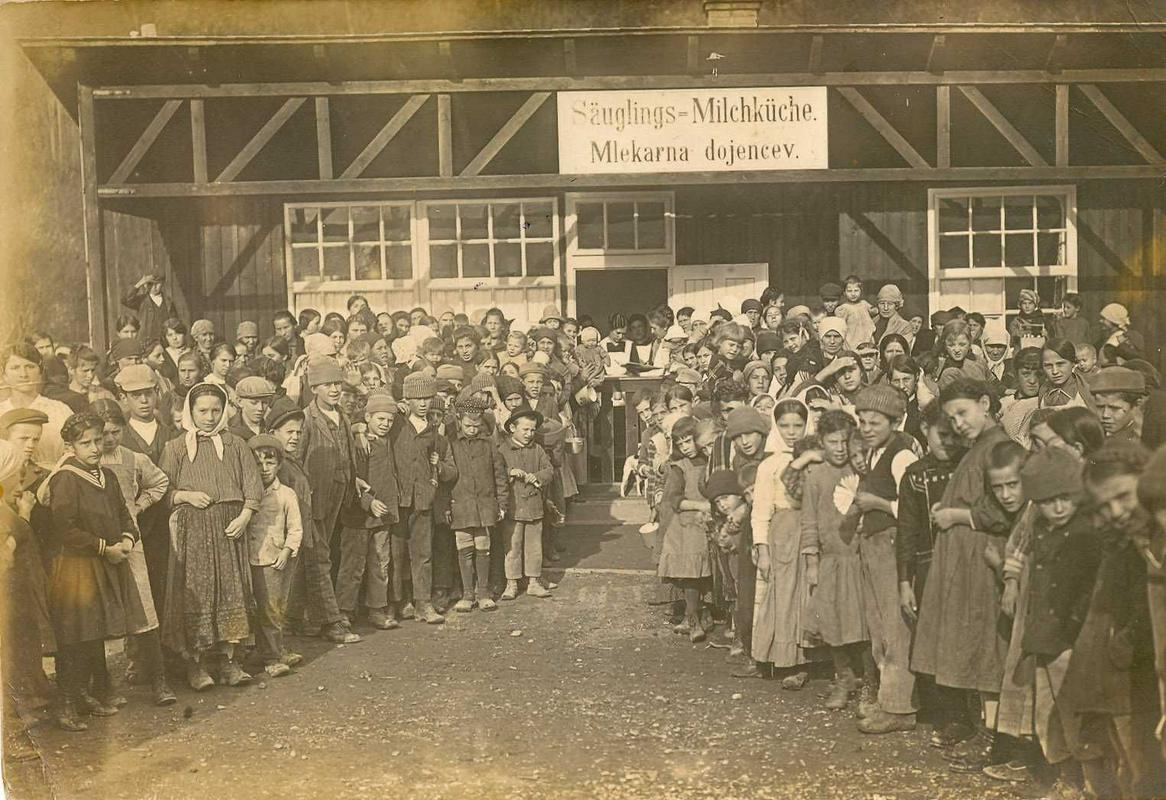
is what Marija Košuta wrote in a letter to Zagreb in 1918.
That and similar testimonials are part of a new exhibition in Kobarid, which highlights the scenes behind the front lines and the stories of people during World War One. The exhibition entitled 1916 - (Pre)hrana. Women in the background of the Soča Front, which was prepared by the Ljubljana Faculty of Arts and the Walk of Peace Soča Region Foundation, is open for the public from today until the end of October. It can be seen in the offices of the foundation in Kobarid. The honorary speaker at the opening was Prof. Petra Svoljšak PhD, the head of the Milko Kos Historical Institute ZRC SAZU and vice-president of the National committee for marking the 100th anniversary of WWI.
In Kobarid a group of authors under the mentorship of Marta Verginella PhD is involved in an extensive four-year project, which sets up a new exhibition for the 100th anniversary of every year of the war, following the timeline of war events. In the focus of all the exhibitions are women. "Light was never shed in this way on the role women played. For this there was a real investigative absence in historiography," is what one of the authors of the exhibition Petra Testen PhD said last year.
The abundance of the higher classes quickly became just a memory
There was a sudden shortage of food, especially in the Austrian part of the Habsburg Monarchy. The majority of food supplies, as in the case of other countries in war, went to the army. In the bigger cities people were forced to trade their silverware, Biedermeier furniture and fur coats for sacks of flour and potatoes. Desperate and malnourished town women and female workers went to the countryside to try obtain the most necessary things for their families to survive. The shortages then also hit the countryside and led to even more unrest, which quickly contributed to the fall of the Austro-Hungarian Empire.

































































